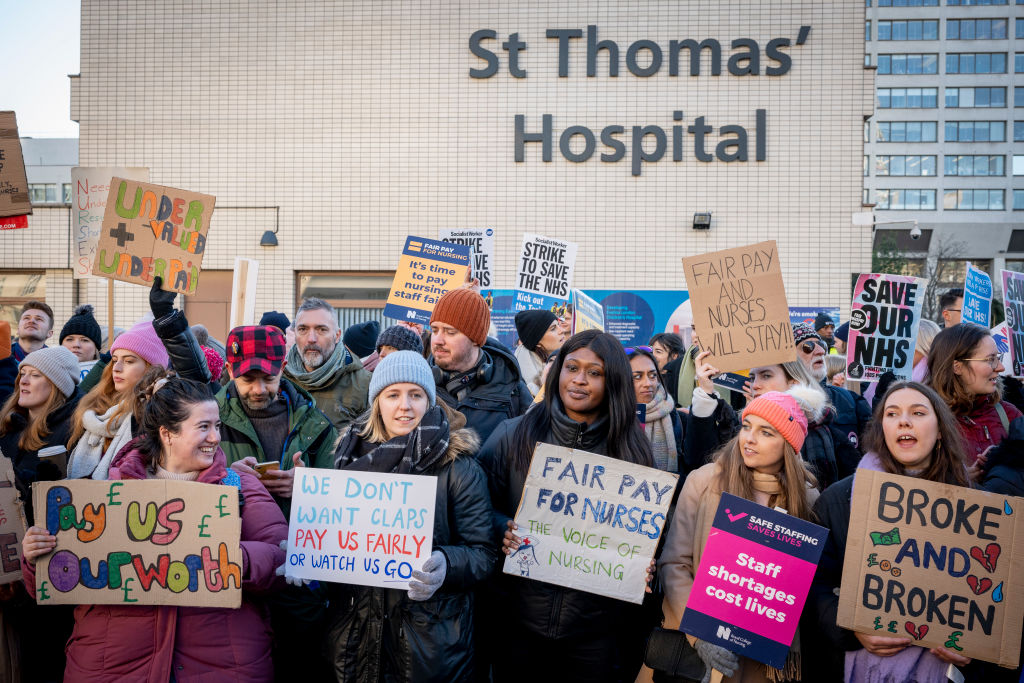As we end 2022, the SoR team is busy preparing to make the radiography case to the NHS Pay Review Body (PRB) for the 2023-24 pay round. At the same time, colleagues in a number of NHS unions are taking industrial action seeking urgent improvements to the 2022-23 NHS pay award.
Our Scottish members did meet the Government-set thresholds for industrial action, alongside a number of other unions in Scotland. This threat was enough to bring the Scottish Government back into negotiations, with members narrowly accepting an improved offer. Industrial action in England, Wales and Northern Ireland has not as yet had a similar impact.
This is partly because UK health secretary Stephen Barclay is hiding behind the so called “independence” of the PRB process. There are many things that employers and unions across the NHS struggle to fully agree on. The lack of freedom and genuine independence given to the PRB is on the shortlist of things everyone agrees about. It is not, never has been, and is unlikely ever to be, independent of Government.
Barclay is using this mirage as a political screen during industrial action but he will be fully exposed in January when the PRB starts to receive evidence from unions and NHS employers. All stakeholders will, as we have done for years, point out how the lack of adequately funded, sustained workforce planning is impacting patients and undermining the NHS.
SoR evidence to the PRB
All stakeholders will acknowledge how a decade of below-inflation pay awards has undermined recruitment and retention – both directly in making some roles simply uncompetitive in the employment market; and indirectly, by signalling to potential recruits that Government doesn’t really value their roles and their professionalism.
All stakeholders will again acknowledge that the workforce crisis was critical before the pandemic and that it’s only getting worse. The SoR will amplify this for all areas of radiography. Our PRB evidence will offer practical and pragmatic options for affordable, realistic, short and medium term actions that could eventually address the staffing crisis.
These are likely to include the need for:
- A significant, above-inflation pay rise on time in April 2023, rather than NHS workers being made to wait again as inflation continues to run amok in the Cost of Living Crisis
- A commitment to sustained above-inflation pay rises, and adequate funding for NHS employers, to make up the loss of earnings over the last decade and close the Value Gap*
- A commitment to jointly review role boundaries, job profiles and professional practice across all professions, to recognise and reward professional changes this century in areas like radiography
- Greater transparency around workforce pressures - including implementing Jeremy Hunt’s proposal to legally require the publication of accurate, independently audited workforce figures. These could then be mapped across forecasted demand to facilitate transparent long term NHS workforce planning with funding settlements adjusted accordingly, reducing short term politics around NHS pay.
These will be the same proposals we would be making if direct negotiations existed in England, Wales and Northern Ireland as they do in Scotland. As they don’t exist, we will make the case through the PRB. The SoR will make this case to anyone and everyone, whenever we get the chance.
How far the PRB will be able to go in response is the test of its “independence”. What happens over Christmas and in January, whilst the on-going industrial action takes place and the PRB process plays out, is more critical now than ever.
Barclay will be exposed
Barclay will have no hiding place. The restraints on the PRB will be exposed to everyone. Eventually he will have to talk, listen and act - regardless of the PRB process. If he doesn’t, union and patient anger will only intensify. The SoR and others will have no choice but to reconsider whether we need to join the industrial action. Patient and voter anger will also amplify as a General Election gets closer. The NHS cannot afford any more political games but the hiding game is not one that Barclay can win.
*The term Value Gap aims to highlight the gap that has grown between the pay, reward and wider recognition of those who look after people and those who look after money/profit. For example, public sector pay has consistently been held below inflation, whilst other sectors have seen regular above inflation pay rises, as well as the continuation of bonus pay and wider benefits not accessible in to public servants. Professions in the public sector are increasingly uncompetitive as a result, contributing to a public sector skills and staffing crisis.
Dean Rogers is SoR executive director of industrial strategy and member relations
Related News
 Trade Union & IR
Trade Union & IRAdditional support coming for SoR reps in 2023
Important update for all SoR Representatives from Dean Rogers
 Trade Union & IR
Trade Union & IRMembers in Scotland Vote to Accept Pay Offer by Narrow Margin
51.3% of those who voted in the consultative survey indicated they wished to accept the of...
 Trade Union & IR
Trade Union & IRWe stand in solidarity with nurses
SoR vice-president Tom Welton gives a personal view of the Royal College of Nursing’s indu...
